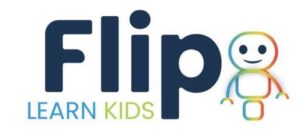Dive Briefs:
- Two recently released reports criticize private education voucher programs for taking taxpayer funding away from public schools and fueling expansion of school privatization through tax benefits used by mostly wealthy families.
- A report from Public Funds Public Schools, a nonprofit that advocates for public schools, examines voucher programs in seven states and concludes that except for Ohio, investments in public schools declined as voucher spending grew. A separate analysis from the Institute on Taxation and Economic Policy found that in three states, more than half of all voucher tax credits are going to families with annual incomes over $200,000.
- At the same time, Republican lawmakers in at least 32 states have proposed legislation this year to create or expand tax-funded programs to help parents with private school expenses, according to FutureEd at Georgetown University’s McCourt School of Public Policy.
Dive Insight:
The Heritage Foundation, a conservative think tank that advocates for free enterprise and limited government, predicts this year to be robust with pro-voucher legislation. In 2021, 19 states enacted 32 new or expanded education choice policies, the foundation said.
“2023 may be the year education choice becomes a reality for a majority of students and states finally put government-assigned schooling in the rear-view mirror,” said Lindsey Burke, executive director of Center for Education Policy at The Heritage Foundation, in a statement.
Those supportive of voucher programs and other publicly funded school choice programs say parents want to be empowered with choosing their child’s school. EdChoice, a nonprofit education reform organization that supports school choice, reports that this school year, about 690,000 students in 32 states are using $4 billion in private school subsidies through tuition vouchers, education savings accounts and tax-credit scholarships.
Critics, however, say taxpayer dollars should stay with public schools — where most students learn. They also argue private schools have limited accountability and transparency and don’t guarantee certain student civil rights, such as special education services required under the Individuals with Disabilities Education Act.
The Public Funds Public Schools analysis of seven state voucher programs found Florida is the “most significant subsidizer of private schooling in the nation.” Its review found that from FY 2008 to FY 2019, the state had increased spending on three tax credit or conventional voucher programs by 313%.
During the same time, Florida decreased its per-pupil funding for public education by 12%, from $9,799 in fiscal 2008 to $8,628 in fiscal 2019. The drop in per-pupil funding is not tied to economic decline, as it fell within the same time period as a 3.4% annual growth rate in the state’s gross domestic product, the report said. All other states, on average, increased per-pupil spending by 9.6% during this time.
The report from the Institute on Taxation and Economic Policy specifically looks at school tax credit vouchers, which allow individuals and businesses to be reimbursed for “donations” they provide to organizations that give vouchers or scholarships for free or reduced-priced tuition at private schools.
For example, the institute said if a taxpayer receives a dollar-for-dollar tax credit for their donation to a voucher program, that tax money is being rerouted from public entities to private vouchers.
While the Internal Revenue Service has tightened policies to prevent the misuse of voucher tax credits, “significant tax avoidance is still occurring through less-scrutinized channels,” the report said.
Data from tax agencies in Arizona, Louisiana and Virginia showed more than half of voucher tax credits in those states are going to families with incomes over $200,000. In Virginia, for example, 1% of families earning less than $50,000 in FY 2015 received voucher tax credits, compared with 87% of those earning more than $200,000.
The institute recommends repealing these types of tax credits and requiring voucher-bundling organizations to use the same charitable giving incentives as other nonprofits. Other steps suggested to prevent tax avoidance include preventing federal tax code policies that incentivize school privatization efforts, as well as stronger policies to eliminate these types of tax shelters, the report said.






Leave a Reply